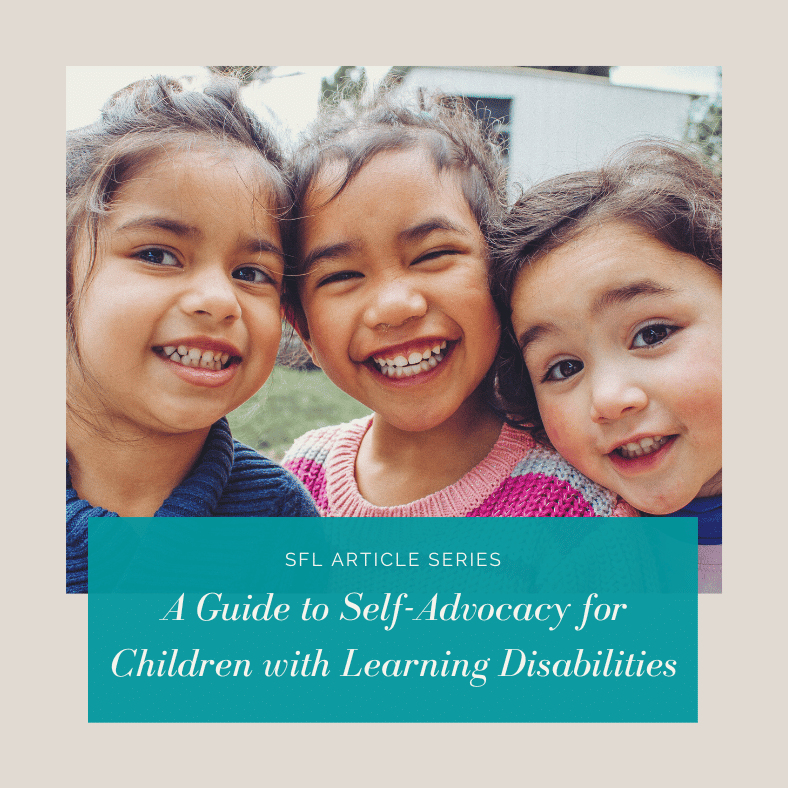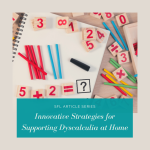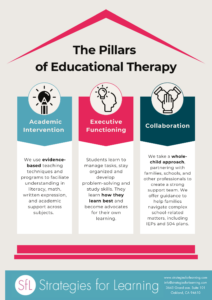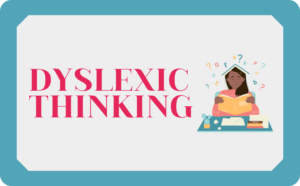No products in the cart.

Navigating the school environment can be a challenging experience for any child, but it can pose unique obstacles for school-aged students with learning disabilities. Empowering these children to practice self-advocacy is crucial for fostering independence, building confidence, and ensuring they receive the support they need to thrive academically and socially.
Know Your Strengths and Challenges: Encourage your child to understand his or her strengths and challenges. This self-awareness is the foundation for effective self-advocacy. By helping to identify accommodations or modifications that best suit your child’s learning style and recognizing individual strengths, you can help your child confidently approach challenges with a positive mindset and articulate any unique needs that the educators must meet in the classroom to ensure future success.
Develop Communication Skills: Communication is at the heart of self-advocacy. Help your child build effective communication skills, both verbal and written. All children need explicit practice to express their thoughts, concerns, and needs clearly and assertively. Practicing role-playing scenarios can be a valuable tool to enhance a child’s ability to communicate effectively in different situations.
Understand Your Rights: Students with disabilities have legal rights and protections under laws such as the Individuals with Disabilities Education Act (IDEA) and Section 504 of the Rehabilitation Act. Educate them about their rights and the accommodations available to them. Knowing the law empowers them to advocate for the support they require and ensures that they receive a fair and inclusive education.
Build a Support Network: Encourage your child to build a support network that includes teachers, classmates, friends, and family. Having allies who understand your child’s needs and are willing to assist can make a significant difference. Teach your child how to articulate specific accommodations to a support network and how to collaborate with others to achieve common goals.
Set and Advocate for Goals: Help your child set realistic academic and personal goals. Whether seeking additional support in a specific subject or participating in extracurricular activities, clear goals provide a roadmap for self-advocacy. Teach your child how to communicate these goals to teachers and administrators, seeking the necessary accommodations for success.
Promote Problem-Solving Skills: Life is filled with challenges, and children should be equipped with the problem-solving skills to navigate them. Encourage your child to think critically about the obstacles school may present and brainstorm possible solutions. This type of exercise fosters independence and resilience, critical components of effective self-advocacy.
Practice Self-Confidence: Building self-confidence is crucial for any child, and students with disabilities are no exception. Encourage your child to take pride in his or her abilities and achievements. Self-confidence plays a vital role in advocating for one’s needs, and a positive self-image will empower your child to speak up and participate fully in their educational journey.
Empowering school-aged kids to self-advocate is a collaborative effort that involves parents, educators, and the students themselves. By fostering self-awareness, effective communication, knowledge of rights, and a strong support network, students with disabilities can confidently navigate the school environment, ensuring they receive the accommodations and support necessary for success. Through these efforts, we can create a more inclusive and supportive educational experience for all students. Strategies for Learning’s team of experienced clinicians can help your child be a strong advocate for their own educational needs!
Written by Stephanie Broytman, M.A. Learning Disabilities






